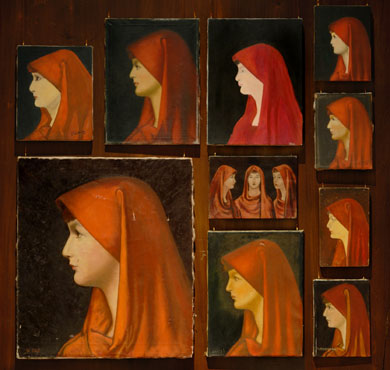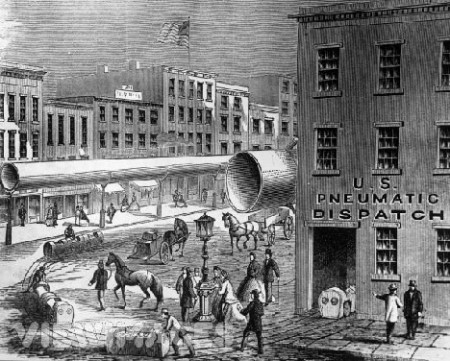There is a tonsured buffoon I know, whose head is always inclined at an unnerving angle. His neck, I think, must be a supple one. He tells me, often, shouting at me from a distance of only a few inches, that he has startling capacity in one of his lungs, and almost none in the other, and that from day to day, sometimes even from hour to hour, there is a sudden switch, the lung that was capacious becoming clogged, and vice versa. To his own satisfaction, he has ascribed this to a pneumatic curiosity within his being. He says, or rather shouts, that it causes him no discomfort, and he has on no occasion discussed it with a doctor of medicine. I have asked him if in addition he has a hydraulic peculiarity, but answer comes there none, for he is not the most skilful of conversationalists. Even when leaning against a mantelpiece at a cocktail party, a situation where one might expect him to make some effort, he remains silent, his head at that odd angle, until someone comes close up to him, a few inches away. That is when he begins shouting. He has the piercing eyesight of a seagull, so myopia is not the explanation for his conduct. He shouts about matters other than his lungs, and can even be amusing, for instance when mimicking the sound of blotting paper being dragged across a pinboard. If one accepts that he will never answer a question directly put to him, nor hold his head at a reassuring angle, he can prove a splendid companion.
And of course there is his tonsure, which he keeps smooth by shaving it morning and evening, and rubbing into it an ointment of his own recipe. He has also been known to dye it gold, or sometimes blue, as the fancy takes him. He claims neither the tonsure itself nor his dyeing of it has any ritual significance, that it is mere whim. Funny kind of whim, I say. Others say the same, and less politely. There is much muttering that the tonsure is symbolic of something, that the changes in the colour of the dye, at those times it is applied, relate to the moon and the tides, or to the gestation period of squirrels, or to cycles yet unknown to cosmologists. Whether the buffoon is aware of such talk or not is a moot point. It is not something he has ever shouted about, while leaning against a mantelpiece or otherwise.
We were all surprised when he was placed under arrest. Crime of any kidney was the last thing one would associate with him. He was held in one of the fortresses which border the main square, but which one, ah, now that was a mystery. Their different purposes are announced only by the flags hung outside them, each of which is, in its own way, a masterpiece of decorative obfuscation. The sentries are mute. There are no windows on the lower floors, and those higher up are of frosted glass. It goes without saying that they are bulletproof, and proof against any other projectile, including the fist of a man clad in chain mail, hanging from a winch attached to an illegal helicopter. That man was me, actually, in a mad escapade from which I somehow emerged with body and soul intact.
With the protracted absence of my friend, I sank into melancholy. I missed his close range shouting and that’s a fact. Then one day, years later, his head, still at that unnerving angle on his neck, appeared on our postage stamps. But the tonsure was gone! I could not fathom, nor could any of us, what these two startling developments meant. The mutterings, long unmuttered, started up again, with some desperation. When the morning carts clattered through the portcullises of the fortresses on Thursdays, we gathered in the square, wondering if we would see our old friend being carried upon one, dressed in finery perhaps, a sceptre held aloft, or bound and gagged and on his way to the gallows. But week followed week, and we saw only the usual mix of nobles and criminals, sometimes even sharing a cart. By the turn of the year we stopped going to the square altogether, and remained huddled in our chalets, playing games of lanternjaw or spite, smoking our pipes, and swatting at flies.
I never forgot the buffoon, though I fear some of my colleagues did. I kept a collection of the postage stamps upon which his head had appeared, long after it was supplanted by new issues, showing the moon and the stars and pregnant squirrels and up and coming cosmologists. Those I did not collect. Nor did I ever find out what had become of my shouty, difficult pal. Until, on my deathbed, yesterday, or possibly the day before, he appeared hovering in a haze above my head. His mouth moved as if he was shouting, but there was no sound. I never learned to read lips, so I do not know what this shade or phantom or whatever it was was trying to tell me. Just before it vanished, in a sort of vaporous bursting, I saw that the angle of the head was no longer weirdly askew, indeed it was perfectly straight, or upright, but that the tonsure had reappeared, and it was golden again, oh so golden, and I was blinded by it.


